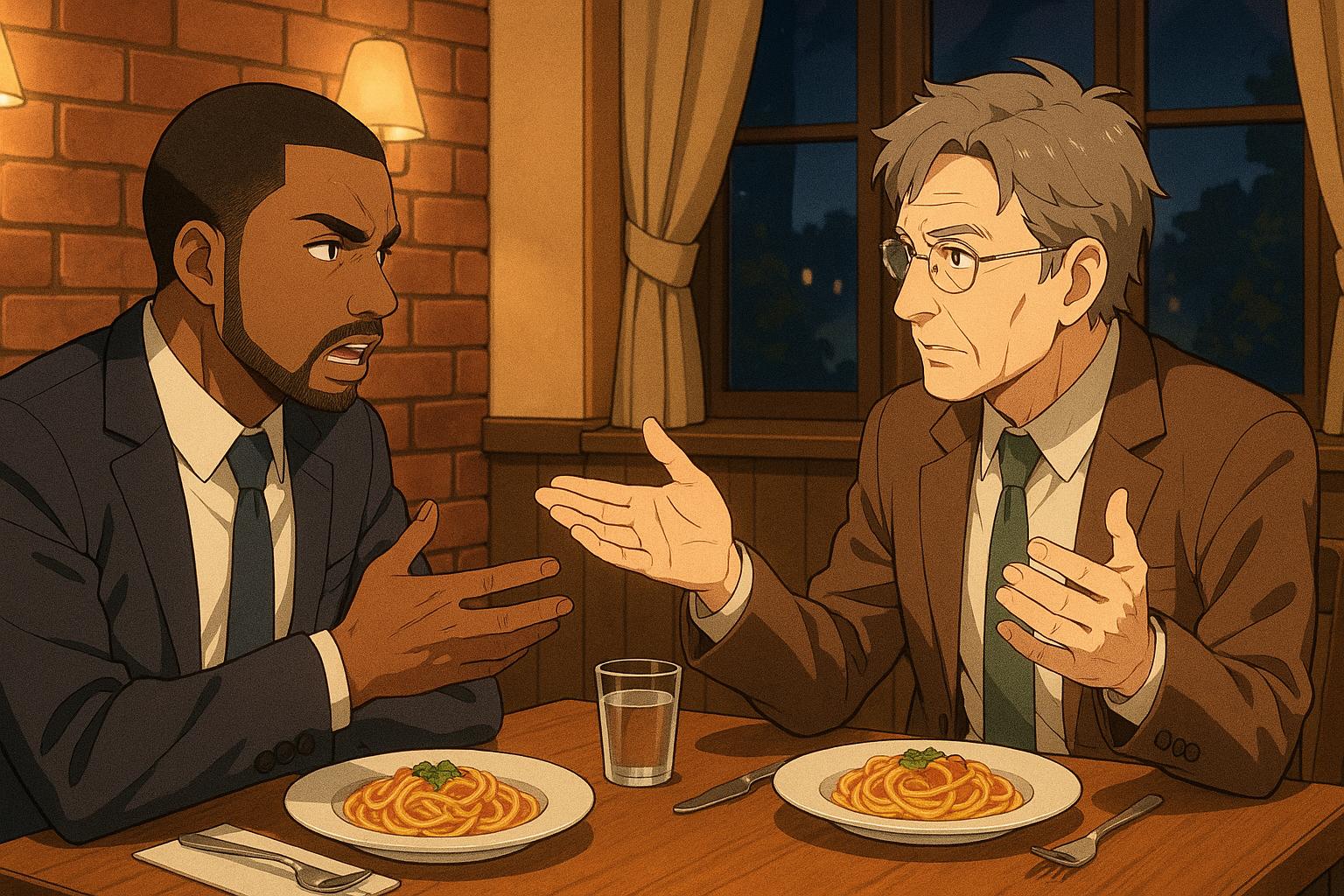In an increasingly polarised world, the opportunity for political discourse between individuals of differing beliefs often seems lost in the din of social media echo chambers. However, a recent dinner in Darlington between Lian, a 57-year-old former chemistry professor now leading growth at a green startup, and Carl, a 46-year-old ex-Royal Navy officer turned software developer, provides a refreshing glimpse into the potential for civilised dialogue across ideological divides.
The meal, which took place at Saltfish, was marked not just by intriguing culinary choices—Lian opted for a coronation chicken terrine while Carl enjoyed a salmon starter followed by haddock katsu curry—but also by expansive conversations that meandered through both personal experiences and pressing national issues. Their backgrounds may differ significantly; Lian, identifying as centre-left and a Labour enthusiast, once cast his vote for the Green Party, while Carl’s political journey has primarily aligned with the Conservative Party, albeit with recent flirtations with the Reform Party.
As the evening shifted towards the topic of the BBC licence fee, their perspectives highlighted the fundamental rift between their philosophies. Carl argued passionately for its abolition, contending that the plethora of channels available today renders the traditional funding model obsolete. He noted, “We get threatening letters every year – I just ignore them,” indicating a disconnection from the public broadcasting model. In contrast, Lian espoused the crucial role the BBC plays in providing quality programming, emphasising its necessity for an informed public. “The right pushes back against the BBC because it is one of the few organisations that will report objectively,” he asserted, underscoring the broadcaster’s value in a democracy where scrutiny is essential.
The conversation shifted to the global pressing issue of climate change, with Carl readily acknowledging its inevitability but expressing scepticism regarding the collective global commitment to addressing it. “The Chinese, Americans, Russians aren’t on board with it,” he remarked, reflecting a frustration that mirrors a broader sentiment among some sceptics that individual efforts may fall short without international cooperation. Lian, however, advocated for a pragmatic approach: while recognising the challenge, he emphasised the need for sustainable policies that arise from mutual understanding and collaboration.
Their discussions did not shy away from divisive figures in contemporary politics either. Tensions surfaced regarding Donald Trump, whose leadership style elicited mixed reactions from the pair. Lian derided the former president’s approach as erratic and detrimental, describing him as a “dangerous idiot,” while Carl found a begrudging admiration for his audacity in challenging established norms.
Such candid dialogue is symptomatic of the relationships cultivated when individuals embrace differences rather than shy away from them. Reflecting on their time together, Carl noted, “There was a political difference: he’s to the left of me. But people of different political persuasions often get on better than people from the same side.” Lian echoed this sentiment, appreciating the deep, honest conversations that could flow from engaging with those who may challenge one’s views.
In an age when conversations across party lines may often devolve into hostility, the rapport developed between Lian and Carl serves as a reminder of the importance of dialogue. Their willingness to confront uncomfortable subjects, while finding common ground on others—like the necessity of addressing poverty in deprived areas—highlights the richness of engaging with different perspectives.
As they parted ways with the mutual agreement to perhaps meet for a beer in the future, their dinner illustrates not just the opportunity for understanding, but the potential for building bridges in a landscape often characterised by division. In their discourse over dinner, Lian and Carl illuminatingly demonstrate that while political views may clash, mutual respect and the willingness to converse remain vital threads binding society together.
Reference Map
- Paragraphs 1, 2, 3 - Source 1
- Paragraphs 4, 5 - Source 2
- Paragraph 6 - Source 3
- Paragraphs 7, 8 - Source 4
- Paragraphs 9, 10 - Source 5
- Paragraph 11 - Source 6
- Paragraph 12 - Source 7
Source: Noah Wire Services
